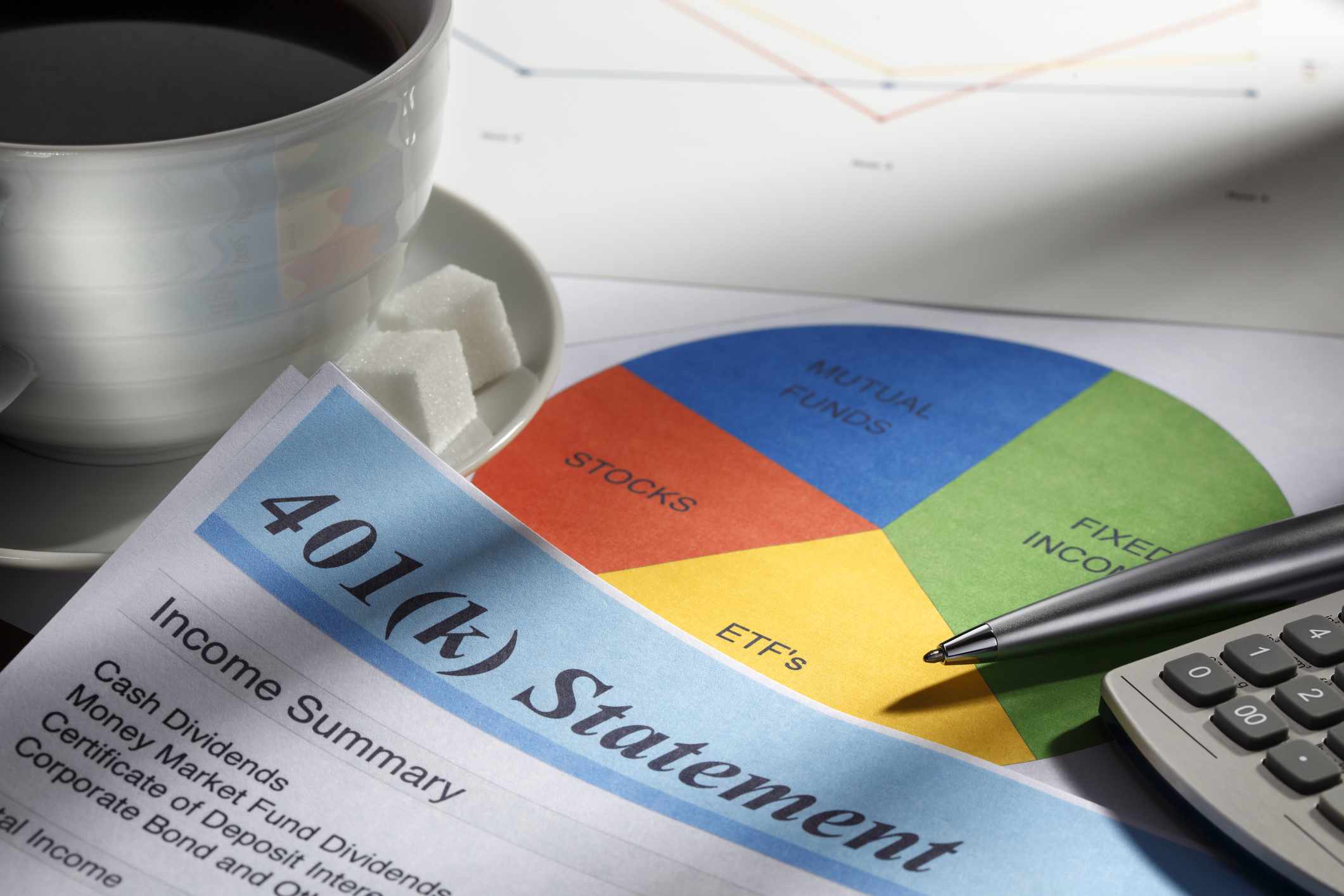

Finance
What Is A 401K Plan Sponsor
Published: October 15, 2023
Learn what a 401K plan sponsor is in the world of finance and how they play a vital role in managing retirement savings for employees.
(Many of the links in this article redirect to a specific reviewed product. Your purchase of these products through affiliate links helps to generate commission for LiveWell, at no extra cost. Learn more)
Table of Contents
What is a 401k Plan Sponsor
A 401k plan sponsor is an employer who establishes and maintains a 401k retirement plan for the benefit of their employees. The sponsor is responsible for overseeing the administration and operation of the plan, ensuring compliance with legal regulations, and providing investment options for participants.
The 401k plan sponsor plays a crucial role in helping employees save for retirement. They create the plan to offer a tax-advantaged way for employees to contribute a portion of their income towards retirement savings. The sponsor typically selects a plan provider, such as a financial institution or a retirement plan administrator, to assist in the day-to-day management of the plan.
As the plan sponsor, the employer has the authority to determine the eligibility requirements, contribution limits, and vesting schedules for the 401k plan. They also have the responsibility to communicate this information to employees, enroll new participants, and educate them about investment options and retirement planning.
In addition, the 401k plan sponsor acts as a fiduciary, which means they have a legal and ethical duty to act in the best interests of the plan participants. This includes prudently selecting and monitoring the investment options offered in the plan, ensuring that fees and expenses are reasonable, and providing accurate and timely disclosures about the plan’s features and performance.
Overall, the 401k plan sponsor takes on a vital role in helping employees build a secure financial future. By offering a 401k plan, employers can attract and retain talented employees, provide valuable retirement benefits, and contribute to the overall well-being and financial stability of their workforce.
Definition of a 401k Plan Sponsor
A 401k plan sponsor refers to an employer or company that establishes and maintains a 401k retirement plan for their employees. The 401k plan sponsor is responsible for managing the plan and ensuring its compliance with the regulations set forth by the governing bodies, such as the Internal Revenue Service (IRS) and the Department of Labor (DOL).
As the plan sponsor, the employer has the authority to determine the terms and conditions of the plan, including eligibility requirements, contribution limits, and vesting schedules. They also have the responsibility to select the investment options available within the plan and communicate all pertinent information to the plan participants.
One of the primary purposes of a 401k plan sponsor is to provide employees with a tax-advantaged retirement savings vehicle. Through a 401k plan, employees can contribute a portion of their pre-tax income directly into an investment account, allowing their savings to grow tax-free until withdrawal during retirement.
The 401k plan sponsor holds a fiduciary role, which means they are legally obligated to act in the best interest of the plan participants. This includes prudently selecting and periodically reviewing the investment options, ensuring that fees and expenses are reasonable, and providing transparent information about the plan’s rules, guidelines, and performance.
It’s important to note that while a 401k plan sponsor is typically an employer or company, it can also be a union or an organization that establishes the plan on behalf of its members. Regardless of the entity, the plan sponsor plays a critical role in assisting employees in their retirement journey by offering a valuable and structured savings vehicle.
In summary, a 401k plan sponsor is responsible for establishing and maintaining a 401k retirement plan, selecting investment options, and ensuring the plan’s compliance. They hold fiduciary duties and are committed to providing a tax-advantaged savings platform for employees, ultimately helping them secure their financial future during retirement.
Role and Responsibilities of a 401k Plan Sponsor
The role of a 401k plan sponsor is to oversee the administration and operation of the 401k retirement plan offered to employees. With this role, they take on a range of important responsibilities to ensure the plan’s success and compliance with relevant laws and regulations.
One of the primary responsibilities of a 401k plan sponsor is to establish the plan and make decisions regarding its structure, features, and eligibility criteria. They determine the plan’s contribution limits, vesting schedules, and investment options available to participants. The sponsor must also communicate the specifics of the plan to employees, including enrollment procedures and relevant deadlines.
Additionally, a plan sponsor is responsible for selecting and monitoring the plan’s service providers, such as record keepers, investment managers, and custodians. These providers play crucial roles in the day-to-day administration of the plan, so careful consideration is necessary when choosing and evaluating them.
As a fiduciary, a 401k plan sponsor must act in the best interest of the plan participants. This includes prudently selecting and monitoring the investment options available within the plan and ensuring that fees and expenses are reasonable and transparent. The sponsor should regularly review investment performance and make necessary adjustments to the investment lineup to maintain a diverse and well-performing portfolio for participants.
Furthermore, a 401k plan sponsor is responsible for ensuring the plan’s compliance with federal regulations, such as the Employee Retirement Income Security Act (ERISA). This involves filing required documents and reports, providing accurate and timely disclosures to employees, and conducting annual nondiscrimination testing to ensure the plan does not unfairly favor highly compensated employees.
Plan sponsors must also educate employees about the benefits and features of the 401k plan, providing resources and tools to help participants make informed investment decisions. Communication and education efforts should extend to new hires, as well as providing ongoing support and guidance to participants throughout their employment.
In summary, the role of a 401k plan sponsor is multifaceted. They are responsible for establishing and managing the plan, selecting service providers, ensuring compliance with regulations, acting as a fiduciary, and educating and supporting plan participants. By fulfilling these responsibilities, a 401k plan sponsor plays a crucial role in helping employees save for a secure and comfortable retirement.
Importance of a 401k Plan Sponsor
A 401k plan sponsor plays a vital role in supporting employees’ financial well-being and retirement preparedness. Here are some key reasons why the role of a 401k plan sponsor is important:
1. Retirement Savings: As the sponsor of a 401k plan, the employer provides a valuable platform for employees to save for retirement. This is crucial because traditional pension plans are becoming less common, shifting the responsibility of retirement savings onto individuals. By offering a 401k plan, employers give employees the opportunity to contribute a portion of their income and potentially benefit from matching contributions, allowing them to build a nest egg for their retirement.
2. Tax Advantages: A 401k plan offers tax advantages to both employees and employers. Employees can make pre-tax contributions, reducing their taxable income in the present, and the contributions grow tax-deferred until withdrawal during retirement. Employers, in turn, may also benefit from tax deductions for matching contributions they make on behalf of their employees.
3. Attract and Retain Talent: Offering a 401k plan is an attractive benefit for potential employees and can help with recruiting top talent. In a competitive job market, a comprehensive benefits package that includes a 401k plan can give employers an edge. Additionally, providing a 401k plan can help improve employee satisfaction and loyalty, enhancing employee retention rates.
4. Financial Security: A 401k plan sponsor plays a crucial role in promoting financial security for employees. By encouraging savings and providing investment options, employers empower their workforce to take control of their financial futures. A well-funded 401k plan can provide a source of income during retirement, helping employees maintain their standard of living and enjoy a comfortable retirement.
5. Fiduciary Responsibility: As a plan sponsor, employers have fiduciary responsibilities to act in the best interest of plan participants. This includes prudently selecting and monitoring investment options, managing fees and expenses, and providing transparent communication about the plan. This fiduciary duty demonstrates commitment and builds trust with employees, ensuring that their retirement savings are protected.
6. Financial Education: A 401k plan sponsor plays a significant role in promoting financial literacy and education among employees. They can provide resources, tools, and workshops to help employees make informed decisions about their retirement savings and investments. By fostering financial education, employers can empower employees to take control of their finances and make sound choices for a secure retirement.
Overall, the role of a 401k plan sponsor is of paramount importance in helping employees save for retirement, offering tax advantages, attracting and retaining talent, promoting financial security, fulfilling fiduciary responsibilities, and providing financial education. By prioritizing their role as a plan sponsor, employers contribute to the long-term financial well-being of their workforce.
Legal and Fiduciary Duties of a 401k Plan Sponsor
As a 401k plan sponsor, employers have both legal and fiduciary duties that they must fulfill to ensure the proper administration and management of the plan. These duties are established to protect the interests of the plan participants and ensure compliance with applicable laws and regulations. Here are the key legal and fiduciary duties of a 401k plan sponsor:
1. Duty of Loyalty: A 401k plan sponsor has a duty to act solely in the best interest of the plan participants and beneficiaries. This means making decisions and taking actions that are in the participants’ best financial interest, without any conflicts of interest. The plan sponsor must prioritize the participants’ benefits above any personal or corporate interests.
2. Prudent Selection and Monitoring: The plan sponsor has a duty to prudently select and monitor the various service providers involved in the administration and operation of the 401k plan. This includes selecting a qualified plan administrator, investment managers, custodians, and other service providers. The plan sponsor must regularly review the performance and services provided by these entities to ensure they meet the participants’ needs and comply with legal requirements.
3. Investment Selection and Monitoring: A crucial fiduciary duty of a 401k plan sponsor is the prudent selection and monitoring of investment options offered within the plan. The sponsor must offer a diverse range of investment choices that meet the participants’ varying risk tolerance and investment objectives. Regular monitoring of the investment options is necessary to ensure they perform reasonably and align with the participants’ best interests.
4. Duty of Care: The plan sponsor must act with the care, skill, prudence, and diligence of a prudent person familiar with such matters. This includes conducting thorough due diligence when selecting investment options and service providers, reviewing plan documents and disclosures, and ensuring the plan’s compliance with legal requirements.
5. Fee Reasonableness: Employers have a fiduciary duty to ensure that the fees associated with the 401k plan, including investment fees and administrative expenses, are reasonable. This duty requires the plan sponsor to carefully assess and compare fees charged by service providers, negotiate fees where applicable, and consistently evaluate the reasonableness of the fees charged.
6. Reporting and Disclosure: The plan sponsor has a duty to provide accurate and timely disclosures to plan participants, including information about the plan’s features, investment options, fees, and performance. Additionally, the sponsor must submit required reports, such as Form 5500, to government agencies and ensure compliance with reporting and disclosure obligations.
7. ERISA Compliance: The Employment Retirement Income Security Act (ERISA) sets forth numerous legal requirements for 401k plans. The plan sponsor must ensure the plan’s compliance with ERISA, including filing required documents, conducting non-discrimination testing, and adhering to ERISA’s reporting and disclosure requirements.
Fulfilling these legal and fiduciary duties is essential for the plan sponsor to effectively manage the 401k plan and ensure the best interests of the plan participants. By meeting these obligations, the plan sponsor not only protects the participants’ retirement savings but also establishes trust and credibility with employees, demonstrating a commitment to their long-term financial well-being.
Common Challenges Faced by 401k Plan Sponsors
Being a 401k plan sponsor comes with its fair share of challenges. While these challenges can vary depending on factors such as the size of the company and the complexity of the plan, there are some common obstacles that many plan sponsors encounter. Understanding and effectively navigating these challenges is crucial for the successful administration and management of a 401k plan. Here are some of the common challenges faced by 401k plan sponsors:
1. Ensuring Employee Participation: Encouraging employees to participate in the 401k plan can be a challenge. Some employees may not fully understand the benefits of the plan or may have concerns about contributing to retirement savings. Plan sponsors need to invest time and effort in educating and communicating the advantages of the plan, addressing any misconceptions, and offering incentives, such as employer matching contributions, to motivate employee participation.
2. Employee Education and Engagement: Many plan participants lack financial literacy and may not fully understand the investment options and strategies available within the plan. Plan sponsors need to provide ongoing education and resources to help employees make informed decisions about their retirement savings. Engaging employees through workshops, webinars, and personalized guidance can also help improve their understanding and participation in the plan.
3. Investment Selection and Monitoring: Selecting and monitoring the investment options offered within the plan is a significant challenge for plan sponsors. It requires staying up-to-date with market trends, understanding risk profiles, and ensuring a diversified investment lineup. Regularly monitoring the performance of the investment options and making necessary adjustments can be time-consuming and requires a solid understanding of investment principles.
4. Compliance with Regulatory Requirements: 401k plans are subject to various legal and regulatory requirements, such as those outlined by the Internal Revenue Service (IRS) and the Department of Labor (DOL). Plan sponsors must ensure the plan’s compliance with these regulations, including filing required documents, conducting annual testing, adhering to contribution limits, and providing accurate disclosures to participants. Staying updated and navigating the complex regulatory landscape can be challenging for plan sponsors.
5. Fee Understanding and Cost Management: Understanding the fees associated with the 401k plan and managing costs effectively is a common challenge. Plan sponsors must evaluate and negotiate fees with service providers, ensure fee reasonableness, and communicate the fee structure to participants. The complexity of fee structures and the need to balance cost management while delivering quality services can pose challenges for plan sponsors.
6. Keeping Up with Plan Changes: 401k plans may need to be adjusted over time to meet changing needs, regulatory updates, or market conditions. Plan sponsors must stay informed about industry developments, legal changes, and employee needs to ensure their plan remains competitive and aligned with participants’ expectations.
By acknowledging and proactively addressing these challenges, plan sponsors can enhance the effectiveness and success of their 401k plans. Seeking guidance from experts and leveraging technology solutions can also be valuable in overcoming these obstacles and providing employees with a robust retirement savings platform.
Best Practices for 401k Plan Sponsors
Being a 401k plan sponsor comes with significant responsibilities. To ensure the success of the plan and the financial well-being of participants, plan sponsors should follow best practices that promote effective plan administration and engagement. Here are some key best practices for 401k plan sponsors:
1. Regular Plan Review: Conducting periodic reviews of the plan’s features, investment options, and service providers is essential. Assess the plan’s performance, fees, and participant feedback to identify areas for improvement and make necessary adjustments to enhance the plan’s effectiveness.
2. Offer a Diverse Investment Lineup: Provide a range of investment options that cater to various risk tolerances and investment objectives. Consider different asset classes, such as stocks, bonds, and mutual funds, to ensure participants have access to a well-diversified investment portfolio.
3. Participant Education and Communication: Develop and execute a comprehensive education and communication strategy to enhance participant understanding and engagement. Offer educational resources, workshops, and personalized guidance to help employees make informed decisions about their retirement savings.
4. Regularly Monitor and Benchmark Fees: Keep track of the plan’s fees, including investment, administrative, and record-keeping fees. Regularly evaluate the reasonableness of these fees and benchmark them against industry standards to ensure participants are not paying excessive costs.
5. Fiduciary Duty Compliance: Understand and fulfill your fiduciary obligations. Act in the best interest of plan participants, prudently select and monitor service providers and investment options, and provide transparent communication about fees, investment performance, and plan features.
6. Simplify Plan Administration: Streamline administrative processes to reduce the burden on plan sponsors. Utilize automation and technology solutions to simplify participant enrollment, contribution tracking, and compliance reporting.
7. Offer Employer Matching Contributions: Extend employer matching contributions to incentivize employee participation and increase contribution rates. Matching contributions can significantly boost employees’ retirement savings and encourage active engagement in the plan.
8. Stay Updated on Regulatory Changes: Keep abreast of legislative and regulatory changes that impact 401k plans, such as updates from the IRS and DOL. Maintain compliance with reporting requirements, contribution limits, and other legal obligations to avoid penalties or plan disqualification.
9. Seek Professional Expertise: Consider engaging the services of retirement plan consultants, financial advisors, or third-party administrators with expertise in 401k plans. They can provide guidance on plan design, investment selection, compliance, and participant education, helping ensure the plan’s integrity and effectiveness.
10. Monitor Plan Participation and Track Progress: Continuously monitor participant enrollment, contribution rates, and retirement readiness. Regularly communicate the importance of regular contributions and offer tools that allow participants to track their progress toward their retirement savings goals.
By following these best practices, 401k plan sponsors can help maximize the benefits of the plan for participants, ensure compliance with legal responsibilities, and foster a culture of retirement readiness within their organization.
Conclusion
As a 401k plan sponsor, employers have a significant responsibility in helping their employees build a secure financial future. By establishing and maintaining a 401k retirement plan, employers provide a valuable savings vehicle and contribute to their employees’ long-term financial well-being.
The role of a 401k plan sponsor includes numerous duties, such as managing the plan’s administration, ensuring compliance with legal and fiduciary obligations, offering a diverse range of investment options, and providing participant education and communication. It is essential for plan sponsors to understand the challenges they may face, such as employee participation, investment selection, and regulatory compliance, and implement best practices to overcome these obstacles and optimize the plan’s effectiveness.
Being a 401k plan sponsor is not only about fulfilling legal requirements but also about making a positive impact on employees’ lives. By providing a 401k plan, employers help employees save for retirement, enjoy tax advantages, and achieve financial security. Furthermore, offering an attractive benefits package that includes a 401k plan can assist in attracting and retaining top talent for the organization.
To excel as a 401k plan sponsor, it is crucial for employers to prioritize participant education, regularly review and improve the plan’s features, prudently select and monitor investments, and comply with legal and fiduciary responsibilities. By doing so, employers can foster a culture of retirement readiness, empower employees to take control of their financial futures, and contribute to their overall financial well-being.
In conclusion, being a 401k plan sponsor is a significant undertaking, but the rewards are immeasurable. By effectively managing and nurturing a 401k plan, employers have the opportunity to make a positive and lasting impact on their employees’ financial lives, ensuring a more secure and comfortable retirement for all.














